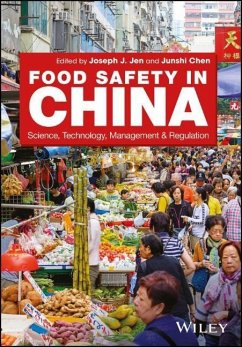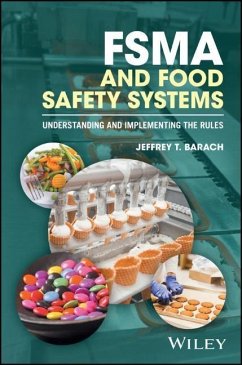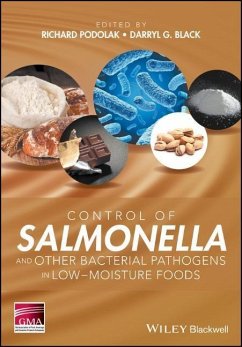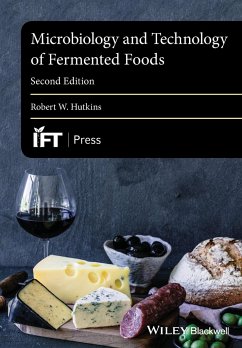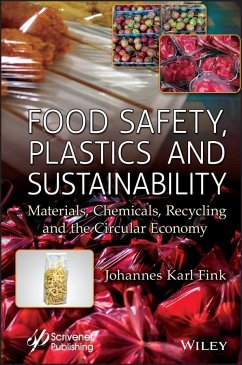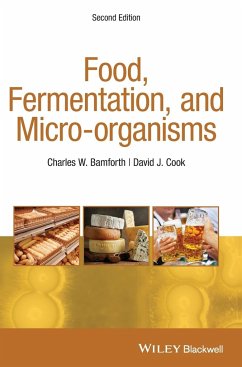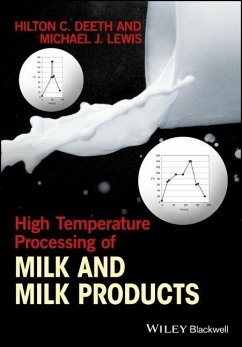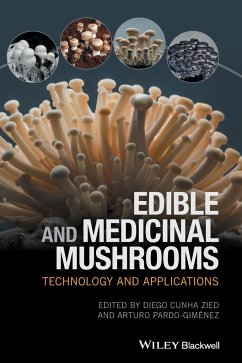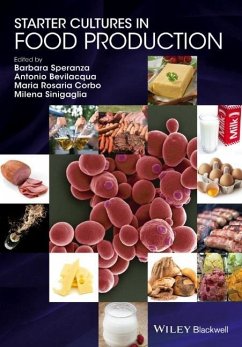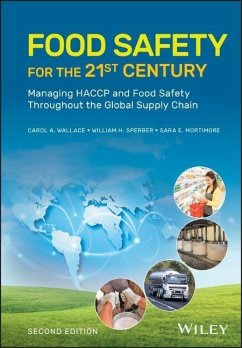
Anti-Mycotoxin Strategies for Food and Feed

PAYBACK Punkte
52 °P sammeln!
Anti-Mycotoxin Strategies for Food and FeedUp-to-date information on mycotoxigenic fungi and toxins, with methods to control them in food and feedAnti-Mycotoxin Strategies for Food and Feed focuses on strategies to control the health risk of mycotoxins associated with cereals, pulses, and vegetables during post and pre harvest stages, in addition to foods, food-based products, and feeds. Each chapter is carefully designed to offer information elucidating various strategies, which include physical, chemical, and biological methods. The book provides a combined approach of advanced techniques us...
Anti-Mycotoxin Strategies for Food and Feed
Up-to-date information on mycotoxigenic fungi and toxins, with methods to control them in food and feed
Anti-Mycotoxin Strategies for Food and Feed focuses on strategies to control the health risk of mycotoxins associated with cereals, pulses, and vegetables during post and pre harvest stages, in addition to foods, food-based products, and feeds. Each chapter is carefully designed to offer information elucidating various strategies, which include physical, chemical, and biological methods. The book provides a combined approach of advanced techniques used against mycotoxigenic fungi, which is helpful in studying the strategies for different mycotoxins.
Special attention has been paid to diseases caused by mycotoxigenic fungi and their destructive effect on either preharvest, post-harvest, or storage, and their respective toxins which pose a long-term health risk to humans and animals, if contaminated food or feed enter our food chain.
The primary focus of the text is on the recent and advanced approaches and strategies including control, detoxification, degradation and binding methods, with graphical representations of protocols with supporting tables and figures.
Anti-Mycotoxin Strategies discusses specific sample topics such as:
_ Advanced anti-fumonisin strategies and strategies for the control of aflatoxigenic Aspergillus species in contaminated food and feed
_ Innovative strategies to decontaminate Ochratoxin A and Zearalenone.
_ Effects of toxic citrinin, patulin and Ergot alkaloids in animals, birds, and humans, and effective mitigation strategies as its control measures.
_ Detoxification and Decontamination strategies of Deoxynivalenol an emetic toxin, Trichothecenes, T-2/HT-2 toxin and nivalenol associated in food and feed as contaminants.
Presenting and discussing mycotoxin management strategies at length and enabling readers to reduce or eliminate health hazards to humans and animals, Anti-Mycotoxin Strategies is an essential resource for mycologists, mycotoxicologists, Microbiologists, Food technology professionals in the food, seed, and feed industries, scientists, students, researchers, and farmers / agriculturists.
Up-to-date information on mycotoxigenic fungi and toxins, with methods to control them in food and feed
Anti-Mycotoxin Strategies for Food and Feed focuses on strategies to control the health risk of mycotoxins associated with cereals, pulses, and vegetables during post and pre harvest stages, in addition to foods, food-based products, and feeds. Each chapter is carefully designed to offer information elucidating various strategies, which include physical, chemical, and biological methods. The book provides a combined approach of advanced techniques used against mycotoxigenic fungi, which is helpful in studying the strategies for different mycotoxins.
Special attention has been paid to diseases caused by mycotoxigenic fungi and their destructive effect on either preharvest, post-harvest, or storage, and their respective toxins which pose a long-term health risk to humans and animals, if contaminated food or feed enter our food chain.
The primary focus of the text is on the recent and advanced approaches and strategies including control, detoxification, degradation and binding methods, with graphical representations of protocols with supporting tables and figures.
Anti-Mycotoxin Strategies discusses specific sample topics such as:
_ Advanced anti-fumonisin strategies and strategies for the control of aflatoxigenic Aspergillus species in contaminated food and feed
_ Innovative strategies to decontaminate Ochratoxin A and Zearalenone.
_ Effects of toxic citrinin, patulin and Ergot alkaloids in animals, birds, and humans, and effective mitigation strategies as its control measures.
_ Detoxification and Decontamination strategies of Deoxynivalenol an emetic toxin, Trichothecenes, T-2/HT-2 toxin and nivalenol associated in food and feed as contaminants.
Presenting and discussing mycotoxin management strategies at length and enabling readers to reduce or eliminate health hazards to humans and animals, Anti-Mycotoxin Strategies is an essential resource for mycologists, mycotoxicologists, Microbiologists, Food technology professionals in the food, seed, and feed industries, scientists, students, researchers, and farmers / agriculturists.




